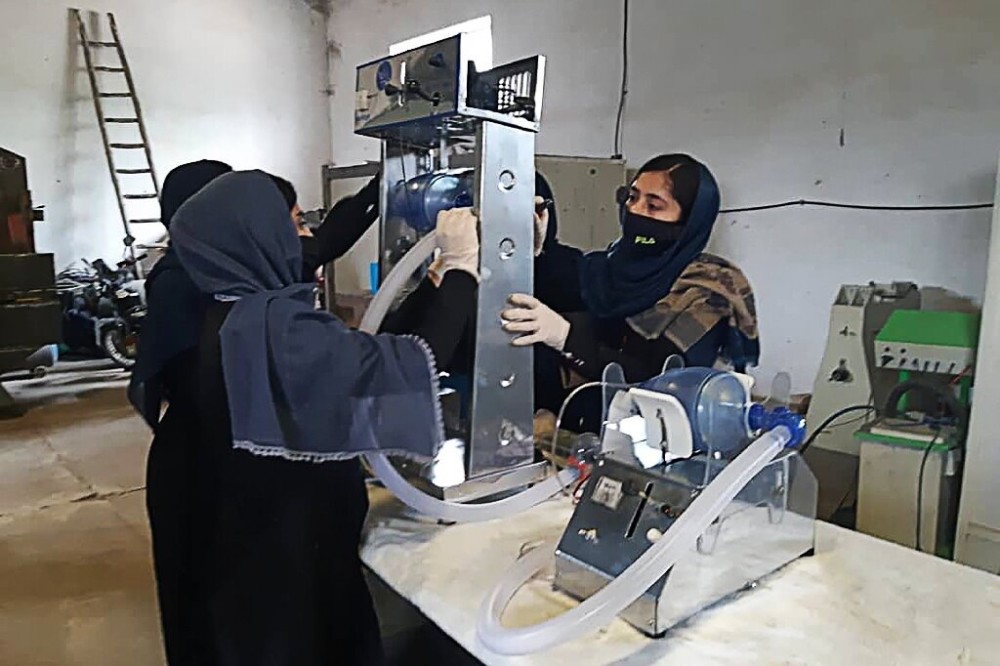By John Sadler
Las Vegas Sun
WWR Article Summary (tl;dr) Senator Jacky Rosen worked as a computer programmer and systems analyst before entering politics. Now, as a leader in Washington, she is making women in STEM a top priority.
Las Vegas Sun
Emily Carter was interested in science from a young age. As she grew older though, and entered into her biology studies, she began to realize the problems for women in STEM fields.
“It wasn’t until college that I started becoming aware of the stereotypes there are and how there really isn’t equal representation of women in my field,” said Carter, now a sophomore at UNLV with plans to go to medical school after graduation.
Sen. Jacky Rosen, D-Nev., who worked as a computer programmer and systems analyst before entering politics, has made investing in STEM — science, technology, engineering and mathematics — and increasing the representation of women and minorities in related fields one of her projects in Washington.
“There still aren’t enough women in all the STEM fields, whether they’re programming, engineering, medicine, math, astrophysics, you name it,” Rosen said. “So, what I wanted to do when I got there was try to promote those at the core level, those logical skills that you learn in computer science that are transferable to every other STEM area to young girls and underrepresented minorities across the country.”
She’s made some progress.
One of Rosen’s pet initiatives, the Building Blocks of STEM Act, was passed by both the House and the Senate in December. President Donald Trump signed it into law on Christmas Eve, marking a rare example of bipartisanship in the current political climate.
The act would mainly target the National Science Foundation, modifying grant programs the foundation manages that support STEM. It would allow some grants to be used to research how pre-K and elementary teachers can better involve young girls in STEM activities and encourage participation by young girls.
Other grants would be awarded to develop “gender-inclusive computer science enrichment programs” and teach young girls about careers in computer science.
Rosen, who touts bipartisanship, said the bill passed with dual-party support because lawmakers have seen the importance of increasing STEM education in their home states.
“It’s very bipartisan because we want our kids to do better and innovate for the future,” said Rosen, who noted the dearth of women in the field when she began her career.
Nikki Tibayan, a sophomore computer science major at UNLV, serves as communications director for UNLV’s Scientista Foundation, an organization dedicated to supporting women in STEM. She said it was important to talk to children about options in STEM fields, and to make it known to them that these fields were open.
“If you’ve ever seen the face of a child who looks in a microscope for the first time or when you hear a little girl say, ‘I never knew female African Americans could be astronauts’ or even hearing them say, ‘I didn’t know girls could do this, I thought it was only for boys.'”
Society teaches young boys they can be whatever they want, while sometimes restricting what young girls should strive toward, Tibayan said.
Rosen has other legislation in the works that she hopes will strengthen the nation’s STEM fields and students studying them.
The Teach Computer Science Act, which would create opportunities for teachers to learn, and, teach, computer science skills, was introduced in December by a bipartisan group of senators: Roger Wicker, R-Miss., Maggie Hassan, D-N.H. and Mitt Romney, R-Utah.
Rosen said that expanding one teacher’s knowledge of computer science could help both teachers and students.
“When you empower and teach a teacher how to break down barriers, bring innovation and excitement to the classroom, every student in that classroom learns,” Rosen said. “Ultimately, other teachers in their school learn because they share from that. So it’s bigger than just one group of students or one teacher.”
She’s also part of a bipartisan group that has brought forward the JROTC Cyber Training Act, which would help train members of the Junior Reserve Officers’ Training Corps for computer science or cybersecurity careers.
Carter, who was highlighted as a notable Nevada woman in a STEM field by Rosen, said that while representation for women in STEM fields had been changing for the better, there were still problems, such as a pay gap between men and women.
“I think that definitely over the past decade that there has become increased representation of women in STEM because it’s become more acceptable for women to pursue those fields and find support to do so,” she said.
It is important, she said, that nothing holds people back from working in the field in which they’re interested.
“No one should ever feel discouraged,” she said.
___
Distributed by Tribune Content Agency, LLC.
















































































































































































































































































































































































